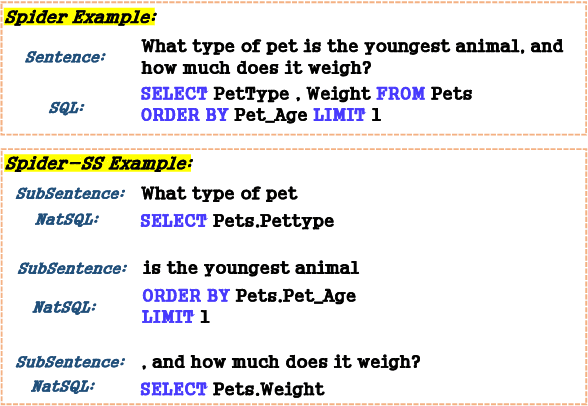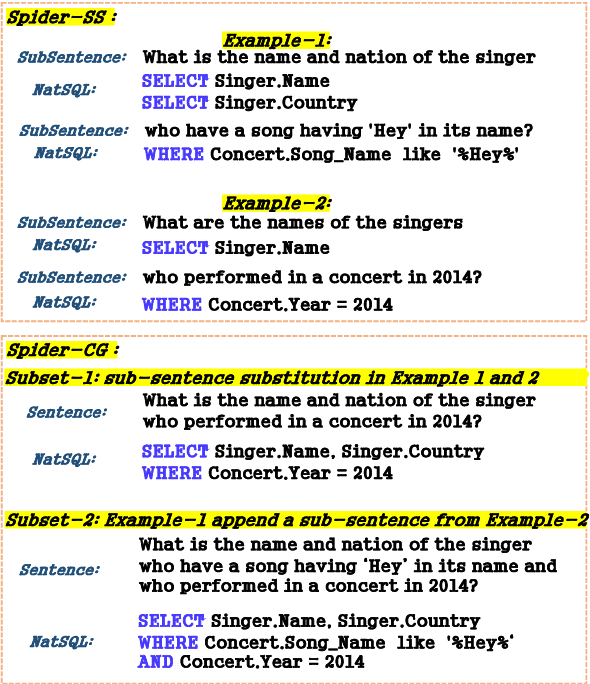Measuring and Improving Compositional Generalization in Text-to-SQL via Component Alignment
Paper and Code
May 04, 2022



In text-to-SQL tasks -- as in much of NLP -- compositional generalization is a major challenge: neural networks struggle with compositional generalization where training and test distributions differ. However, most recent attempts to improve this are based on word-level synthetic data or specific dataset splits to generate compositional biases. In this work, we propose a clause-level compositional example generation method. We first split the sentences in the Spider text-to-SQL dataset into sub-sentences, annotating each sub-sentence with its corresponding SQL clause, resulting in a new dataset Spider-SS. We then construct a further dataset, Spider-CG, by composing Spider-SS sub-sentences in different combinations, to test the ability of models to generalize compositionally. Experiments show that existing models suffer significant performance degradation when evaluated on Spider-CG, even though every sub-sentence is seen during training. To deal with this problem, we modify a number of state-of-the-art models to train on the segmented data of Spider-SS, and we show that this method improves the generalization performance.
 Add to Chrome
Add to Chrome Add to Firefox
Add to Firefox Add to Edge
Add to Edge